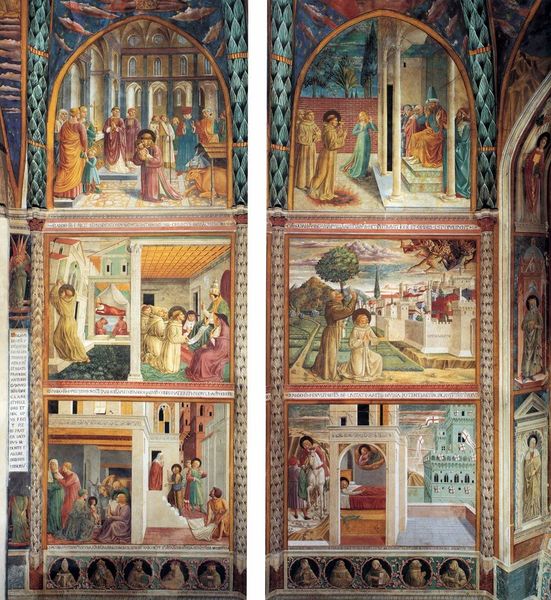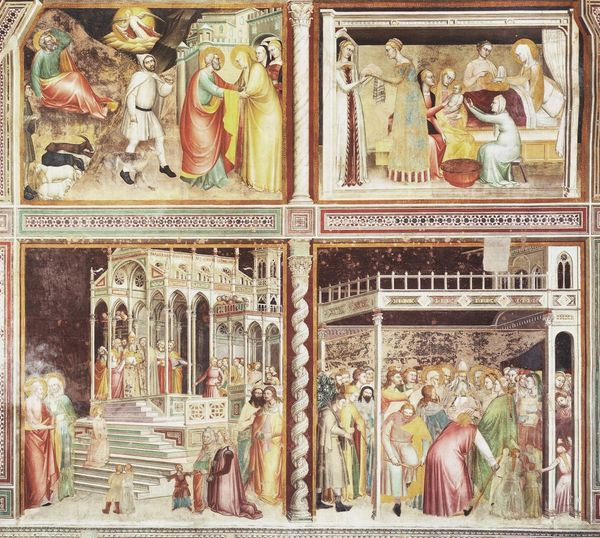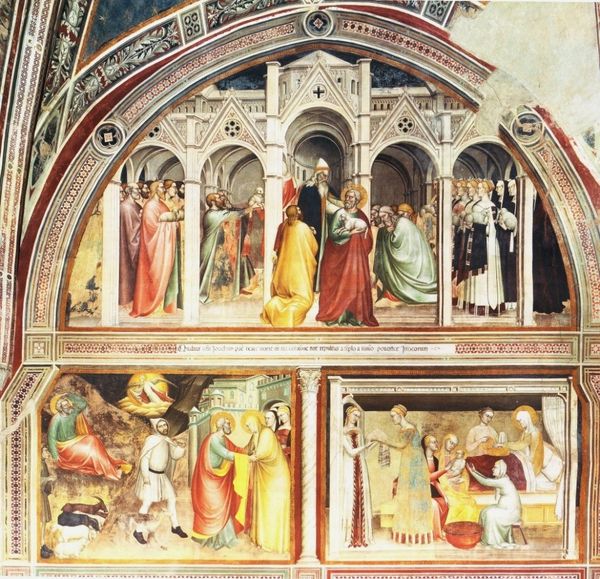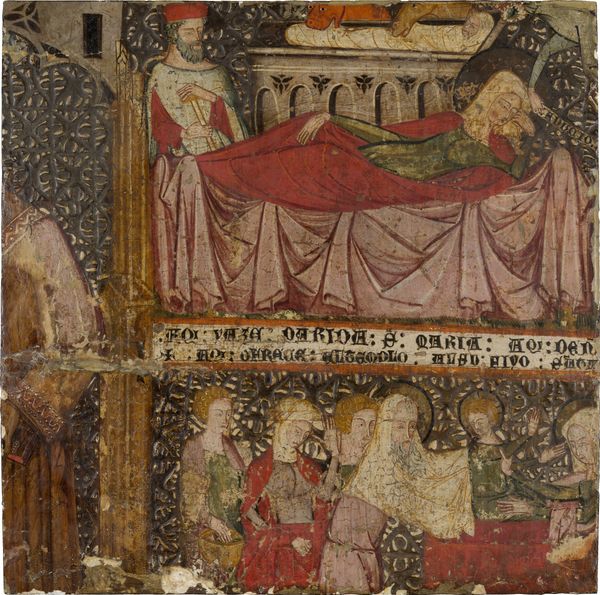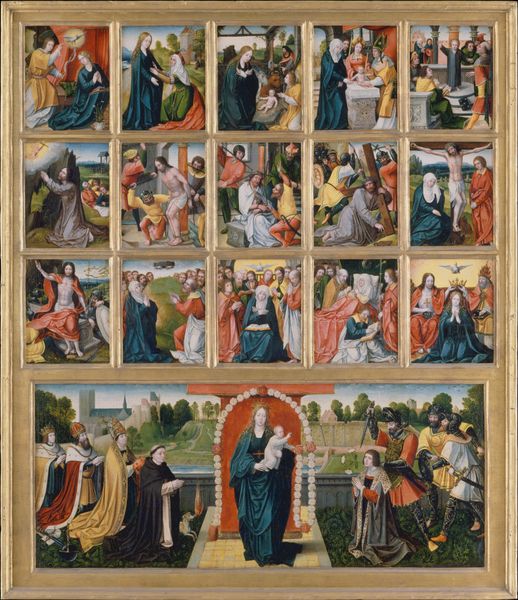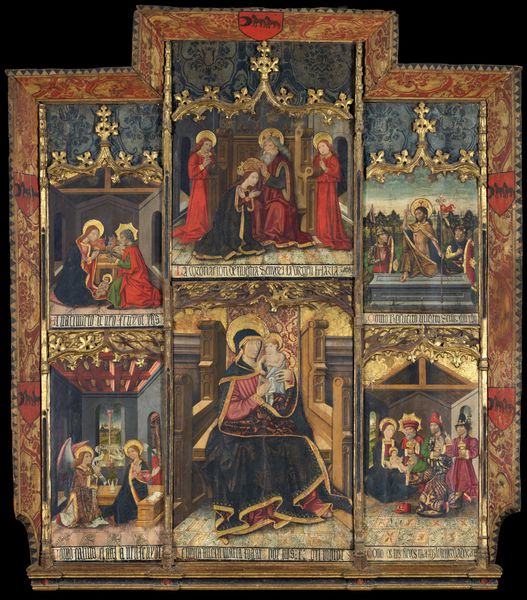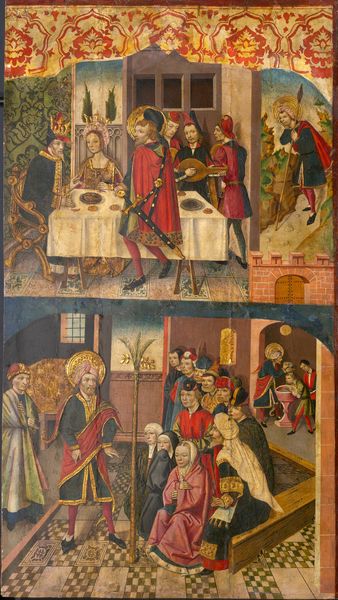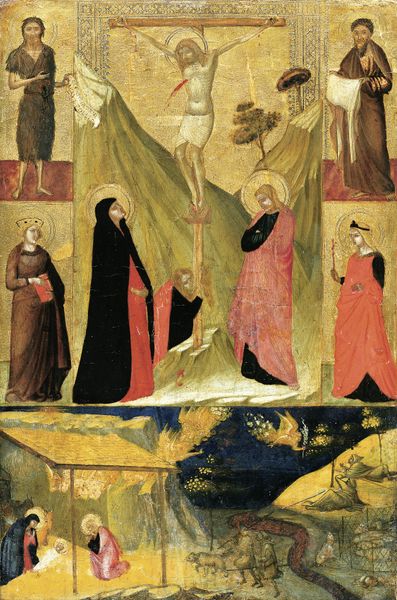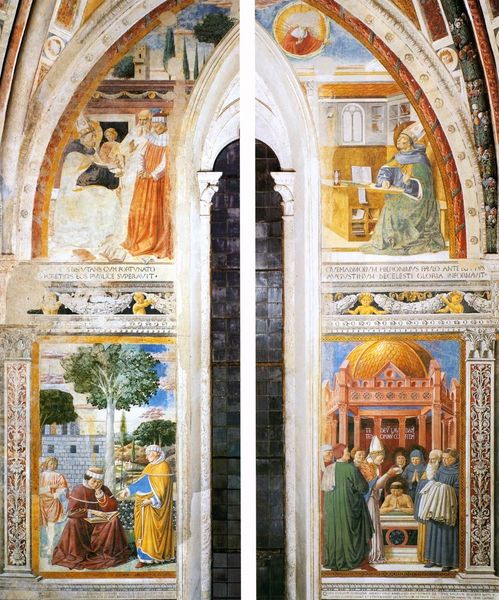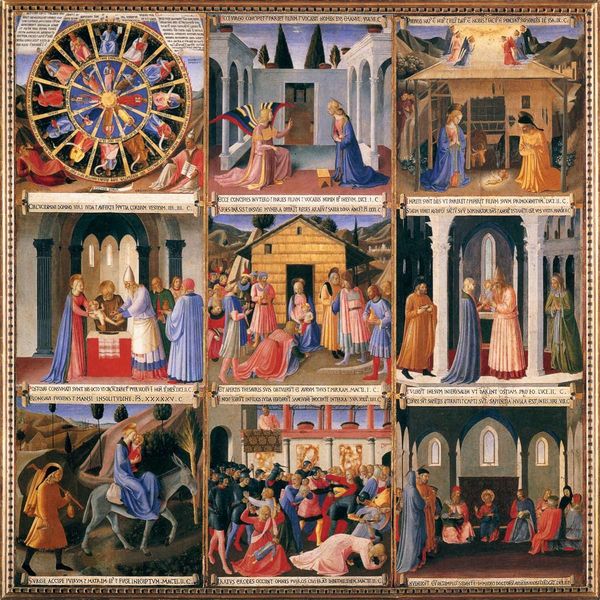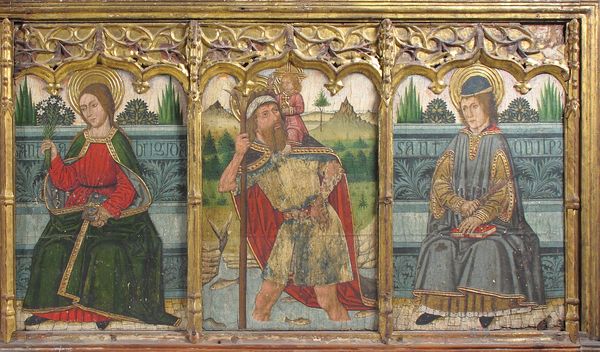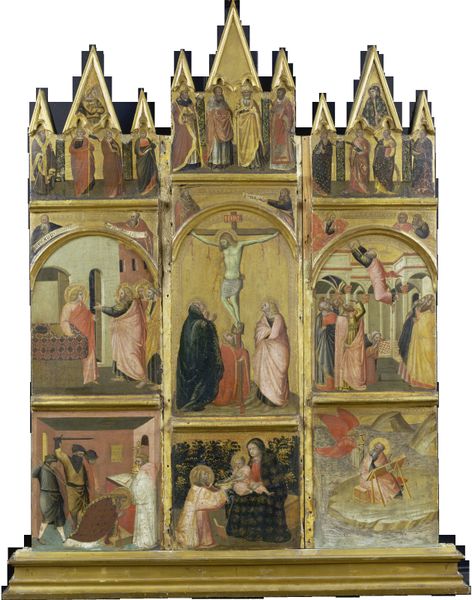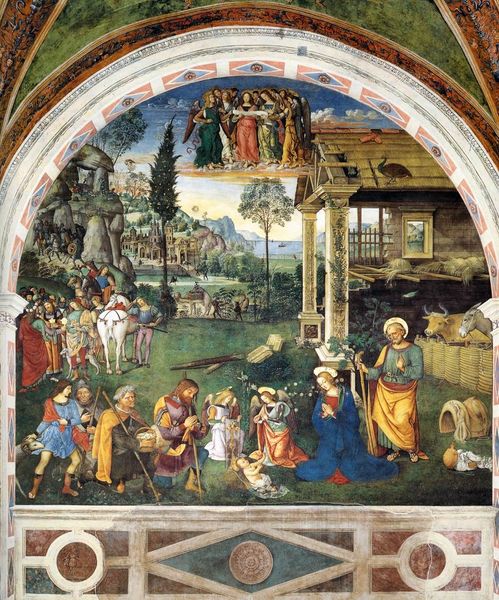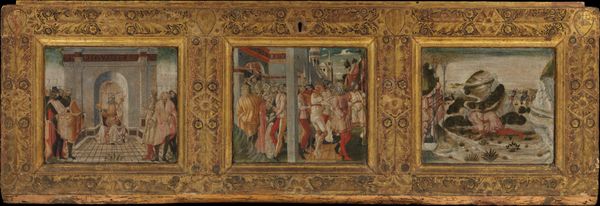
tempera, fresco
#
medieval
#
narrative-art
#
tempera
#
gothic
#
figuration
#
fresco
#
oil painting
#
underpainting
#
history-painting
#
italian-renaissance
#
mixed media
#
watercolor
Copyright: Public domain
Giovanni da Milano painted the Cappella Rinuccini with tempera on a wall, presenting scenes from the lives of Mary Magdalene and the Virgin Mary. Consider the prevalence of halos, signifying holiness and divine grace—a visual marker inherited from late antiquity, where it denoted power. Notice Mary Magdalene's kneeling gesture. This act of supplication transcends mere piety; it echoes across cultures and epochs, symbolizing submission, reverence, and the plea for mercy. Think of ancient Roman depictions of conquered peoples kneeling before emperors, or even pre-Christian images of deities receiving offerings. The gesture speaks to primal human emotions of humility and dependence. The emotional power here lies in the viewer's subconscious recognition of these timeless symbols. Such gestures elicit empathy, engaging us on a deeper level than mere aesthetic appreciation. The act of kneeling thus evolves, carrying layers of historical and psychological meaning.
Comments
No comments
Be the first to comment and join the conversation on the ultimate creative platform.
